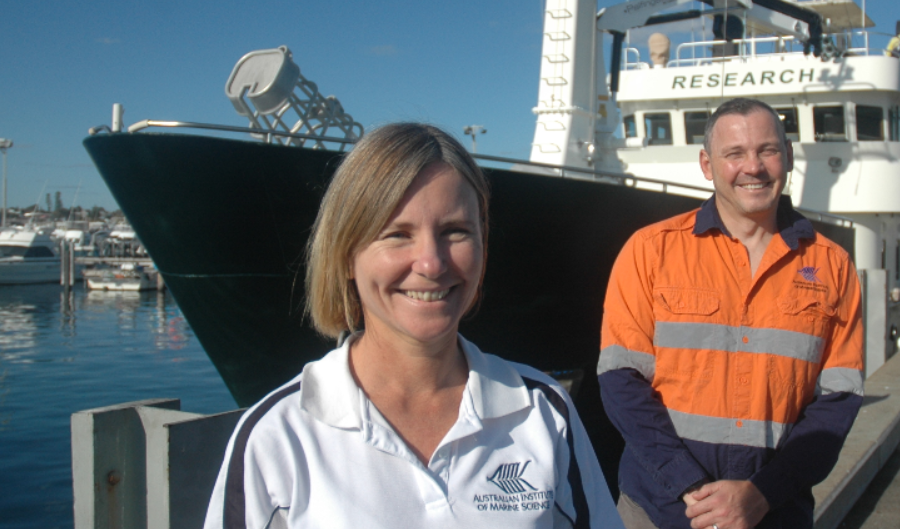As the saying goes you can’t manage what you can’t measure. With that in mind AIMS scientists have departed Fremantle to track and record data on pygmy blue whales off the North West Cape (near Exmouth, Western Australia).
This information will help protect these endangered whales along their annual migratory journey from southern Australia to northern tropical waters and back again.
Current knowledge of migratory patterns of pygmy blue whales is limited and drawn from old whaling records that are not necessarily reliable. This new information of pygmy blue whales will allow us to identify where their movement patterns overlap with industrial activity in order to enable Australia to make the right long-term decisions that preserve our rich and diverse marine environment.
The expedition, led by marine megafauna scientist Dr Michele Thums and supported by project manager Mr Chris Teasdale, will attach a small satellite tracking device to the base of the whale’s dorsal fin. The tracker provides data location when the whale breaks the surface to breathe.
At North West Cape the continental shelf is relatively close to the coastline and this offers an opportunity for Michele and Chris, who are on board the RV Whale Song, from the Centre for Whale Research, to find the pygmy blue whales using a combination of sonar buoys (underwater acoustic tracking) and spotter airplanes (aerial tracking).
The North West Shelf is Australia’s largest and most valuable petroleum production area; last financial year it generated more than half the nation’s total output.
Despite the disruption caused by the Coronavirus, AIMS is keeping important scientific research functioning, and we continue to operate our key capabilities and conduct field work when it is safe to do so.
This scientific endeavour is part of the North West Shoals to Shore Research Program funded by Santos Ltd to better understand Australia’s marine environment. It is a good example of science and industry working together to unlock the knowledge needed to preserve the marine environment and create economic value for the nation.


